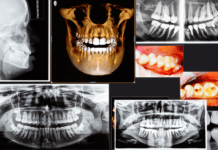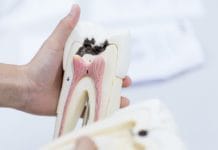Several states have made it legal for patients to use cannabis for medical purposes and recreational use. As a result, the rate of cannabis use has risen significantly across the nation. New research suggests that frequent cannabis use can have a negative impact on a person’s oral health. The study, which was published in the Journal of Substance Abuse, revealed that geriatric patients who indulge in smoking cannabis are more likely to develop serious dental problems including tooth loss and gum disease in the future.
Background Information on Cannabis
Cannabis is a drug derived from two hemp plants named Cannabis indica and Cannabis sativa. The plant’s main psychoactive properties come from THC (or delta-9 tetrahydrocannabinol). People have used cannabis for hundreds of years to treat a variety of illnesses. For example, the drug can provide much-needed pain relief for patients with arthritis, cancer, and spinal cord injuries. Cannabis can also treat patients suffering from depression, migraines, asthma, epilepsy, glaucoma, and many other medical conditions.
Although many people generally understand the benefits of using cannabis, it can also have adverse effects. Research shows that chronic cannabis users are likely to experience psychological, physical, and cognitive issues. Too much cannabis at one time can cause someone to experience fatigue, hallucinations, dizziness, and impaired motor functioning. Cannabis users under the age of 25 may have impaired cognitive function and memory problems.
The Link between Cannabis and Poor Oral Health
Previous studies have suggested a relationship between cannabis use and periodontal diseases. The American Dental Association states that cannabis is associated with several oral health problems including leukoplakia, oral cancer, xerostomia, and neck cancer. For example, a study published in the Journal of Periodontology showed that frequent cannabis users also experienced significantly higher rates of periodontitis than non-users. Meanwhile, other studies demonstrated that cannabis might be related to other serious health complications including stroke, heart attack, seizures, multiple sclerosis, and kidney injuries.
The recent study published in the Journal of Substance Abuse revealed a possible link between poor oral health and the rate of cannabis use among geriatric patients 65 years and older. Scientists discovered that cannabis use increased the patient’s likelihood of having periodontal disease, plaque, dental caries, and decayed or missing teeth. The researchers theorized that patients who used cannabis were more likely to consume alcohol and smoke cigarettes. The patients also experienced cravings for foods with high amounts of sugar and salt that could affect their oral health long-term.
Finally, the scientists also noted that cannabis use leads to xerostomia. This is problematic since saliva has several proteins and minerals that can help protect tooth enamel and prevent periodontal disease. The scientists believe future studies should be conducted on the effect cannabis use has on the oral health of geriatric adults.
In Conclusion
Dental professionals have a responsibility to learn as much as they can about the potential dental risks associated with cannabis so they can educate their patients.
After they discover a patient is a frequent cannabis user, dental professionals should perform a comprehensive oral assessment to look for signs of leukoedema or hyperkeratosis. They should also inspect the patient’s oral soft tissues for any signs of oral cancer. Dental professionals should also advise patients about their increased risk of developing periodontal diseases.
Once the oral assessments are finally complete, dental professionals can also reach out and consult the patient’s primary healthcare provider. This can help them gather additional important information about their condition before they develop a customized treatment plan to address any potential dental issues they may experience due to frequent cannabis use.











